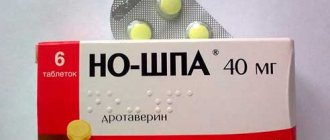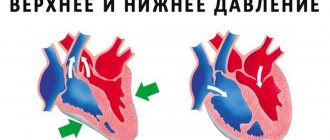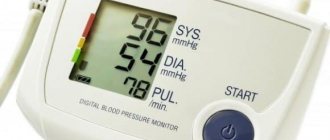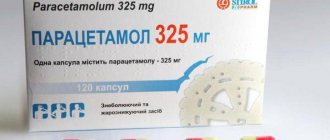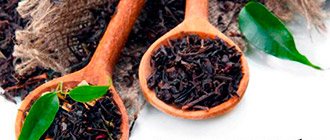How does atmospheric pressure affect blood pressure?
Long-term studies have shown that the dependence of blood pressure on atmospheric pressure can be either acquired or congenital. The science that deals with this phenomenon is called “Biometeorology”. Her program includes studying the influence of a cyclone, as well as an anticyclone, on human blood pressure.
Normal atmospheric pressure is considered to be 760 mmHg. Art. equivalent to 1.01325 bar
Increased sensitivity to weather phenomena can be present not only in people with any pathologies, but also in completely healthy people. Experts distinguish several types of addiction:
- Reverse. This definition is most suitable for people suffering from arterial hypertension. At a time when atmospheric pressure drops sharply, in hypertensive patients, on the contrary, it increases significantly. With hypotension, this type of dependence rarely makes itself felt.
- Straight. In this case, atmospheric pressure and human blood pressure work synchronously. When the atmospheric pressure is low, the blood pressure drops significantly, and when the atmospheric pressure is high, a person’s blood pressure, on the contrary, increases rapidly. This dependence is characteristic, as a rule, of hypotensive patients.
- Partial reverse. This type is characteristic of both hypertension and hypotension. As a rule, in this case, only one of the indicators, lower or upper, changes. Up or down.
Almost everyone reacts to changes in weather conditions. Some to a greater extent, some to a lesser extent. But most often, weather dependence is observed in allergy sufferers, people with cardiovascular diseases, pregnant women, those who have suffered any injuries and with vegetative-vascular dystonia.
How to help yourself with weather dependence?
It is necessary to take an interest in weather forecasts, especially in the off-season. Care should be taken when forecasting cyclones and anticyclones. Ambulance workers note the fact that the health of a large number of people deteriorates during unstable weather and sudden changes in the atmosphere.
Statistics show how weather anomalies affect the number of calls in such situations. They are increasing exponentially. People suffering from hypertension, heart pathologies, and vascular diseases are more susceptible to this influence than others.
Actions of hypotensive drugs during a cyclone
Systematic monitoring of your own blood pressure is important. The following tips will help optimize its performance:
- take a daily shower in contrasting temperatures;
- drink more water and other liquids;
- reduce the negative impact of the cyclone through ginseng tincture;
- drink a small amount of coffee in the morning;
- take a responsible approach to regulating sleep (at least 8 hours), work and rest schedules.
Hardening procedures will not be superfluous. However, the approach to them should be individual, depending on age and the presence of chronic diseases.
Cyclone and hypertension
A cyclone is a change in weather during which there is rain and a decrease in atmospheric pressure. The air becomes more humid, the amount of oxygen decreases, and carbon dioxide, on the contrary, increases. The cyclone has a detrimental effect on almost all people, but those who suffer most are those who have pathologies of the heart and vascular system.
The lower the atmospheric pressure, the heavier the precipitation may be.
In addition to the fact that the cyclone worsens the condition of people with low blood pressure, it is also dangerous for people with hypertension. Blood pressure most often returns to normal, but the risk of complications from heart disease, on the contrary, increases. During a cyclone, hypertensive patients may experience:
- Increased irritability;
- Cardiopalmus;
- Increased heart rate;
- Pressing headaches;
- Feeling of chest tightness;
- General weakness;
- Sudden mood swings;
- Heaviness in the stomach.
Note. When using medications in normal dosages during a cyclone, blood pressure may drop to critical levels. This can lead to serious complications. That is why during this period you should consult a doctor so that he can adjust the treatment.
Anticyclone and hypertension
During an anticyclone, the air becomes drier, a large amount of harmful substances accumulates in it and gas pollution increases. This weather is dangerous for people with arterial hypertension and they may experience:
- Headaches of a pulsating nature;
- Nausea;
- Dizziness;
- Loss of performance;
- Increased blood pressure;
- Often there is tinnitus and black spots before the eyes;
- Pain in the heart and chest area.
During this period, it is best to switch to lean foods, eat more fruits, fresh herbs, vegetables and devote more time to rest. In addition, it is necessary to regularly monitor blood pressure and under no circumstances cancel the course of treatment on your own.
During an anticyclone, it is important to maintain a drinking regime
During an anticyclone, people with high blood pressure significantly increase the risk of a hypertensive attack. Therefore, at the slightest deterioration of the condition, it is best to consult a specialist to adjust the prescriptions for hypertension.
Cyclone and hypotension
The cyclone is quite dangerous for people with low blood pressure. During this period, hypotensive patients most often experience general weakness and deterioration in well-being. Symptoms may include:
- Labored breathing;
- Low pulse pressure;
- Headache;
- Cardiopalmus;
- Drowsiness and fatigue.
With a sharp increase in atmospheric pressure in people with hypotension, a hypotensive crisis is possible. During a cyclone, it is best to devote time to healthy sleep and rest. Ginseng tincture, strong tea with lemon and low-calorie foods have a good effect on the body. It would be useful to take a contrast shower, with the help of which you can increase the tone of the body and improve your well-being.
A contrast shower will invigorate and improve your mood
Causes of meteorological dependence
The influence of atmospheric pressure is the process when, due to changes in weather conditions, some people begin to feel a deterioration in their health. This effect is primarily due to the functioning of the thyroid gland. Disturbances in the functioning of this organ have a significant impact on meteorological dependence.
In addition, there are categories of people who are predisposed to meteorological dependence:
- People suffering from VSD.
- Individuals whose age exceeds 40 years.
- Patients with low immune defense, thyroid and nervous system disorders.
- Emotionally excitable individuals.
- People whose lifestyle is sedentary.
The tendency to depression and neuroses also exacerbates the increased dependence on changing weather conditions. In addition, addiction is affected by lifestyle, nutrition and lack of vitamins and minerals in the human body.
Anticyclone and hypotension
Anticyclone has a detrimental effect not only on hypertensive patients, but also on people with low blood pressure. This is due to the fact that with high atmospheric pressure, blood pressure in people also increases. If a healthy person may not feel these changes, then in hypotensive people, their health condition most often worsens.
Just like during a cyclone, frequent headaches, nausea, dizziness and a constant feeling of fatigue are possible. During this period, you can turn to traditional medicine, for example, a decoction of medicinal herbal compounds.
Decoctions and tinctures of herbs such as eleutherococcus, horsetail and dandelion are considered effective remedies. Strong tea with honey and lemon, as well as a decoction of tartar flowers, helps to improve the condition.
Note. During the anticyclone, you should avoid excessive physical activity, as it significantly worsens the condition of arterial hypotension.
Clinical picture
What Chinese doctors say about hypertension
I have been treating hypertension for many years. According to statistics, in 89% of cases, hypertension results in a heart attack or stroke and death. Currently, approximately two thirds of patients die within the first 5 years of disease progression.
The next fact is that it is possible and necessary to reduce blood pressure, but this does not cure the disease itself. The only medicine that does not contradict the principles of Chinese medicine and is used by famous cardiologists to treat hypertension is Hyperten. The drug acts on the cause of the disease, making it possible to completely get rid of hypertension. In addition, within the framework of the federal program, every resident of the Russian Federation can receive it for FREE
.
What changes are characteristic at high atmospheric pressure? The health of people whose blood pressure is elevated does not remain normal. In this case, the following symptoms are usually observed:
- decreased performance;
- appearance of noise;
- headache;
- “floaters” in the eyes;
- pain in the heart area;
- increased heart rate;
- redness of the facial skin;
- weakness and apathy.
In addition to external ones, some internal changes also occur in the body: with a combination of high atmospheric pressure and hypertension, a drop in the number of blood leukocytes is observed. Against this background, the risk of infectious diseases increases. If problems with the functioning of the heart and blood vessels are chronic, a person feels fluctuations in atmospheric pressure especially acutely. In this case, the risk of developing complications of high blood pressure in the body, such as a hypertensive crisis, as well as other conditions – thrombosis, embolism and even coma increases.
An anticyclone involves a number of changes, among other things, atmospheric pressure increases. Dry and sunny weather, with no wind - this is its typical description. This further worsens the person’s condition and makes breathing more difficult. Outwardly, this manifests itself in redness of the skin, sweating of the hands, and pulsation of the blood.
Hypertensive patients feel such fluctuations best of all: already high blood pressure increases further, and the risk of stroke and heart attack increases.
Experts note the active influence of atmospheric pressure on hypertensive patients. They feel more acutely not only an increase, but also a decrease in this indicator in the atmosphere, in contrast to hypotensive patients, whose pressure is usually slightly below average.
The connection between high blood pressure and hypertension is quite strong. Therefore, all people who have such health problems need to be able to alleviate their condition for these periods of time.
For starters, you should regularly monitor weather forecasts:
- The cyclone will bring a drop in atmospheric pressure, along with precipitation and temperature changes. But, given how low blood pressure affects hypertensive patients, it is still worth monitoring the condition of your body.
- The anticyclone will bring high pressure and calm weather. In general, the effect of high atmospheric pressure on the human body is negative; in hypertensive patients, activity and its defenses are especially clearly reduced.
To alleviate the influence of atmospheric pressure in anticyclone conditions, it is recommended:
- perform simple gymnastics;
- take a contrast shower, sometimes several times throughout the day;
- control your diet - nutrition should be complete and balanced;
- during this period, eat more fruits that contain potassium;
- eliminate stress and strong emotional experiences;
- maintain a sleep and rest schedule;
- avoid overeating.
People suffering from high or low blood pressure must clearly understand how low or high atmospheric pressure affects their body in order to be able to counteract it.
The influence of the anticyclone is strongest in the hot summer period, while frost makes it milder, although breathing in any case becomes difficult, which means that the body’s cells do not receive the volume of oxygen they require.
All those who suffer from hypertension should take care of their body in advance, regardless of how the atmospheric pressure changes.
To minimize the effect of external factors it is necessary:
- bring body weight to normal levels, which will facilitate the functioning of the body as a whole;
- eat regularly and properly;
- timely take measures to treat identified ailments and stabilize the condition;
- walk in the fresh air, ideally, away from dusty city highways;
- get enough rest.
Particular attention must be paid to the state of the nervous system. Stress is not good for anyone, especially for hypertensive patients. Emotional instability, like atmospheric pressure, affects overall well-being. Therefore, you need to minimize watching the news and other exciting activities.
To calm down, you can take medications if prescribed by a doctor. Among the folk remedies, apple juice, infusion of chamomile and mint are characterized by a calming effect.
Changes in weather and atmospheric pressure affect the human body to one degree or another. Some people experience only mild symptoms, while others may experience severe symptoms that can cause permanent tissue damage.
Many people suffer from weather dependence. It is felt most acutely by hypertensive and hypotensive patients. These diseases require careful attention to the body and timely adoption of measures that will help prevent significant deterioration.
Treatment of weather dependence
There is definitely a relationship between atmospheric pressure and blood pressure, which most often causes discomfort to people. This disease can be treated with medications or traditional medicine. Most often, both options usually show the same results.
However, much depends on the individual characteristics of the organism. For some, tablets are more suitable, while for others, various decoctions and tinctures based on medicinal herbs. In most cases, the following are used to treat weather dependence:
Medicines
- Diuretics to remove excess fluid from the body and relieve stress on the heart;
- For diseases of a neurotic nature, it is often recommended to take antidepressants or tranquilizers;
- Adaptogen group drugs are intended to strengthen the vascular system. “Tonginal” is considered the most effective;
- Drugs that support brain activity, for example, “Lucetam”;
- Antispasmodics help well with headaches;
- To improve blood circulation, you can take Kaviton;
- With weather dependence, bone aches and joint pain often occur. To treat this disease, medications with an active ingredient such as ibuprofen can be prescribed;
- To eliminate sleep problems and improve the condition of the cardiovascular system, doctors recommend taking medications that have a calming effect - tinctures of valerian or motherwort.
Before starting any medication, consult a doctor.
